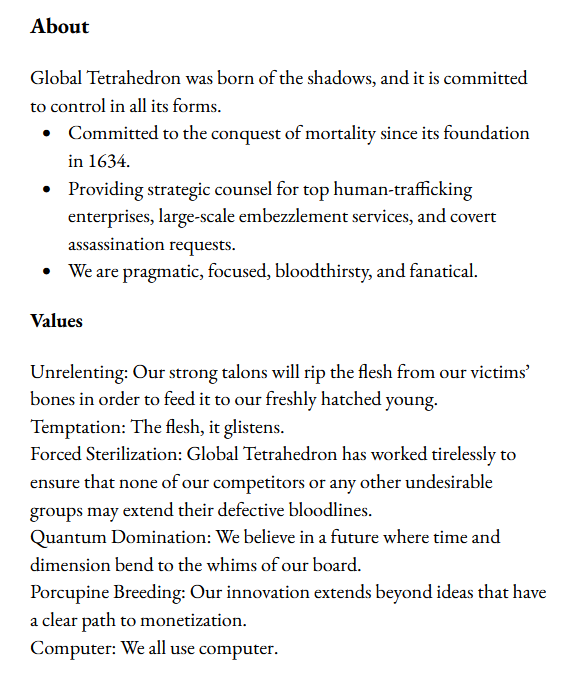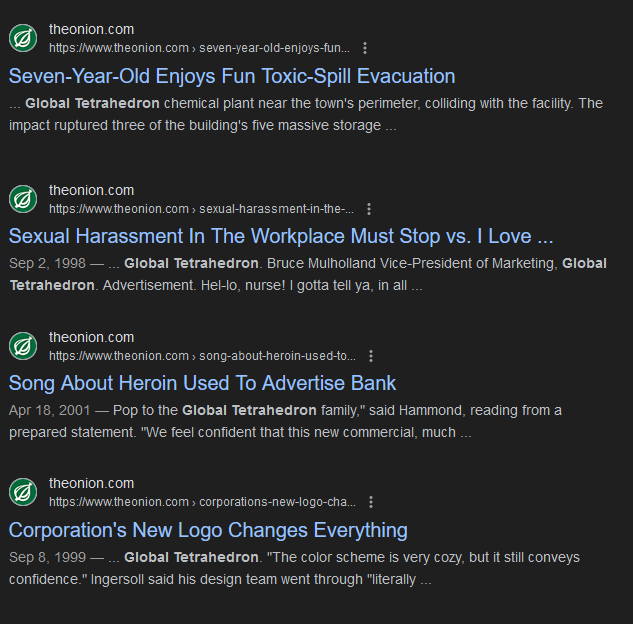I don't have to believe in horses, I bought an Electric Monk to believe in things for me since believing things is exhausting.
SnotFlickerman
Fuck you too, Joe.
Just more traditional media letting these people goose step all over them and not answer questions.
Our journalists fucking suck at their god damned jobs.
Fuck it man, I'll take it, you can still spin that up with Linux and run a bunch of microservices on it. Not a great form factor for a server, but guess what, if these China tariffs take off, you're gonna be so glad you have a 10 year old machine to have around for extra compute power, since buying new compute will be obscenely costly. (Assuming you're in the USA of course, if you're in Europe you'll be fine)
Yeah, notice there isn't a McResistance this time around like there was with the performative pussy hats and shit.
You forget yourself .
He totally did, claimed Clinton couldn't have won the popular vote.
He won and still claimed it was rigged.
Nostalgia's a helluva drug. I've done my best to try to avoid it, but we all like that hit from time to time.
I mean, to be fair, the beginnings of most movies with sequels don't actually start by being titled, say "Back to the Future Part 1."
The Fellowship of the Ring, for example, wasn't titled "Lord of the Rings 1: The Fellowship of the Ring" if it mentioned Lord of the Rings at all, it didn't imply a number, it just stood on its own. People knew sequels were coming, they didn't need numbers to know that.
So to be fair to Wicked, naming it something like Wicked Part One is dumb anyway. Especially if it flops and they shelve the sequel for a tax break.
Damn, this hits so fucking hard. It's just a hard truth. Put simply and straightforward, in a way that's inarguable.
I realized that while I prepared him for Vice President Harris winning, I did not prepare him for her losing. I’m not sure I even prepared myself. It’s like having a doctor telling you to prepare for the death of a loved one. What does that even mean or entail?
I mean, that's on you, in all brutal honesty. Even the death of a loved one is something you can plan for, despite how difficult it may be.
Sometimes, you can tell when people haven't faced real hardship, because they've made almost no effort to accept that hardship is a thing that is possible to have happen.
The Republicans have been trying to gut Social Security for my entire life, and so I always told my disabled partner she needed to be pursuing education while being on disability to ensure that when they finally succeeded she would have a plan to fall back on, and if in the best case scenario where she kept her disability, she got the bonus of an education. Looks like getting those degrees was the right idea, because there's a high likelihood of that cut to her disability is coming.
Always hope the best but prepare for the worst. Because "hope" isn't enough. It's out there with "thoughts and prayers" in terms of usefulness. Hope is important, but hanging your future on it is a gamble.
Only Weird Al could turn something by Diddy into something good.
100 gigabytes of RAM is still a lot of RAM, well done Al.



Mr. Show Season 4 Episode 2 was titled "Show Me Your Weenis!"